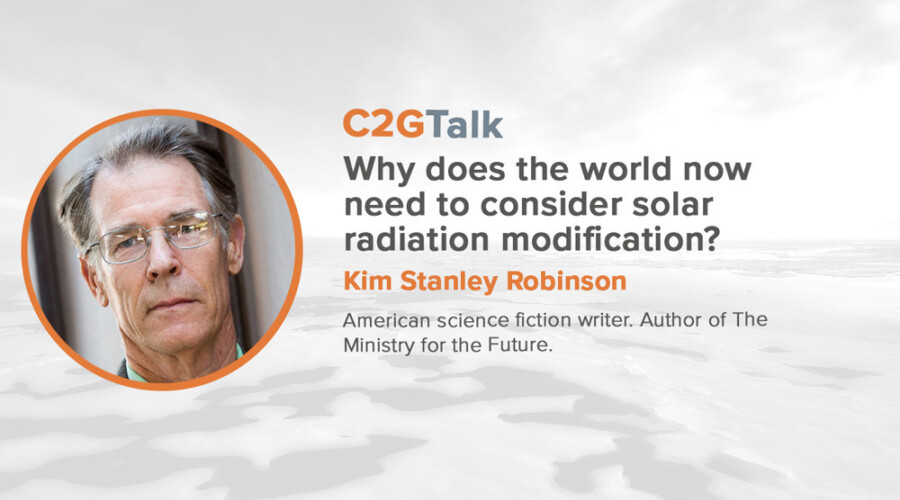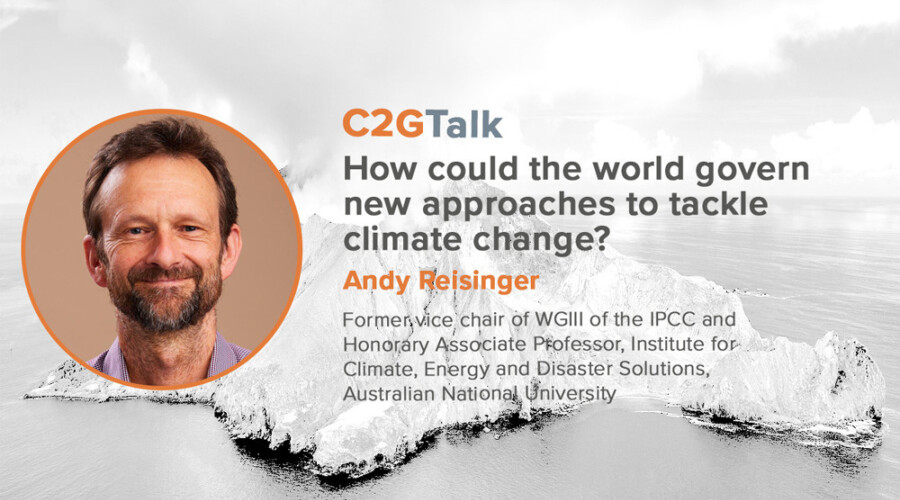Governance is the key element in any climate-altering approaches being proposed, particularly from the point of view of climate vulnerable nations, says Professor Saleemul Huq, director of the International Centre for Climate Change and Development (ICCCAD), in an interview with "C2GTalk." His greatest concern is that decisions that have repercussions for the most vulnerable will be taken without them having a chance to take part in the discussion, so it is extremely important that climate vulnerable nations have a say when decisions are taken regarding climate-altering approaches, including carbon dioxide removal and solar radiation modification.
This interview was recorded on March 1, 2021, and is also available with interpretation into 中文, Español, and Français.
Governance is the key element in any climate-altering approaches being proposed, particularly from the point of view of climate vulnerable nations, says Professor Saleemul Huq in an interview with C2GTalk. His greatest concern is that decisions that have repercussions for the most vulnerable will be taken without them having a chance to take part in the discussion, so it is extremely important that climate vulnerable nations have a say when decisions are taken regarding climate-altering approaches, including carbon dioxide removal and solar radiation modification.
Professor Saleemul Huq is the director of the International Centre for Climate Change and Development (ICCCAD) and chair of the Climate Vulnerable Forum Expert Advisory Group. Huq is an expert on the links between climate change and sustainable development, particularly from the perspective of developing countries. He leads the annual Gobeshona Global Conference, which brings together scholars, policymakers, researchers, and practitioners from around the world to discuss climate change. Huq was the lead author of the chapter on adaptation and sustainable development in the Third Assessment Report of the Intergovernmental Panel on Climate Change (IPCC), and was the lead author of the chapter on adaptation and mitigation in the Fourth Assessment Report. His current focus is on supporting the engagement of the Least Developed Countries (LDCs) in the United Nations Framework Convention on Climate Change (UNFCCC).
For more, including an edited transcript, please go to C2G's website.





